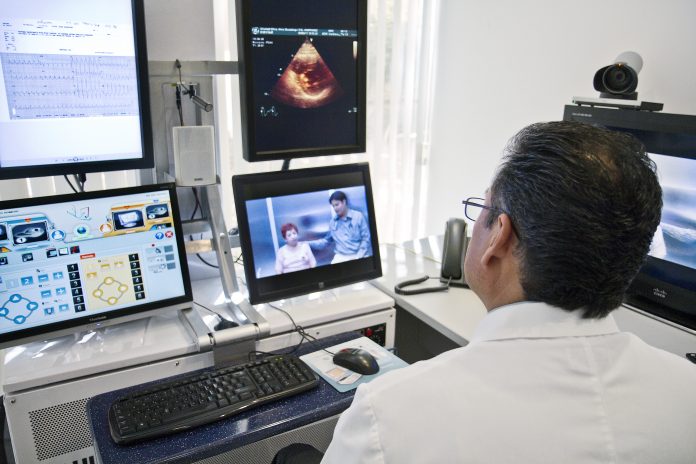By Dr. Peter R. Kowey and Thomas Martin
COVID-19 has highlighted the need for urgent updates to telehealth laws in Pennsylvania. Sadly, PA Bill 857 was vetoed in April, mainly because of extraneous amendments to the bill that would have restricted access to contraception services and certain medications. However, there are many elements of the bill of which patients and healthcare providers should be aware, and that any revised bill should focus on to improve care across the region. While we hope the pandemic is short-lived, telehealth services will only grow in need and urgency. We highlight several areas of focus contained in the legislation that would maintain high-quality telehealth services for Pennsylvanians.
Equal Treatment
The first aspect of PA Senate Bill 857 is the recognition that delivery of healthcare is multi-faceted and only possible with a diverse workforce. The bill ensured equal recognition of healthcare professionals such as occupational therapists, social workers, mental health professionals, speech language pathologists and many other professionals for the purpose of insurance payments. The bill places regulation and oversight of the quality and types of services provided to patients within professional societies and boards, not by governmental entities. This increases access to high-quality care — including prescriptions — via telehealth services.
Recognizing New Technologies
A second component of PA Senate Bill 857 is recognition that the delivery of healthcare is complex and the ability to use technology allows us to overcome barriers of time and space. Technology represents an important solution to working within social distancing guidelines. Historically, patient and healthcare professional interactions were limited to audio and video technologies for payment of services. Mobile phones and the myriad of devices they connect with have revolutionized the way in which patients and healthcare professionals may interact. The term used legislatively, “store and forward” devices, represents many common health and wellness technologies we use daily. Such devices like smart watches, pedometers and many others are finding important roles during telehealth visits. For example, pulse oximeters, devices to measure oxygen in blood, are helping monitor patients at home during the COVID-19 pandemic. Another is the electrocardiogram recording, now available in a variety of affordable wrist-worn or handheld devices. By recognizing these new technologies, patients and healthcare professionals can better utilize time and gain efficiencies during treatment.
Fair Payment for Services
The most important aspect of PA Senate Bill 857 is defining insurance coverage for services delivered via telehealth technologies. Many states in our region, like Delaware and New Jersey, have enacted payment-parity laws by simply stating in legislation that any payer must reimburse the healthcare provider using telehealth “on the same basis as an in-person visit.” Meanwhile, payers in Pennsylvania remain free to implement arbitrary pricing schemes, impacting access to care and limiting high-quality services via telehealth. PA Bill 857 would have prevented unfair billing practices, shielding patients from surprise bills, while paying healthcare providers fairly for time spent keeping their patients safe. Keep in mind that these funds are critical for practices and healthcare systems struggling to remain operational and available to patients during this pandemic.
Telehealth laws in Pennsylvania are lacking when compared to other states in the region. You are now aware of why you may have received an excessive bill for telehealth services, or why so many people have had difficulty accessing healthcare during these unprecedented times. We encourage you to petition your legislative representatives to ensure our community can safely and routinely see our healthcare professionals, whether in person or in a virtual format. ••
Dr. Peter R. Kowey is the William Wikoff Smith Chair in cardiovascular research at the Lankenau Institute for Medical Research, a professor of medicine at the Sidney Kimmel Medical College at Thomas Jefferson University and a Saint Joseph’s Trustee. Thomas R. Martin, Ph.D., is an assistant professor of health studies at Saint Joseph’s University.





